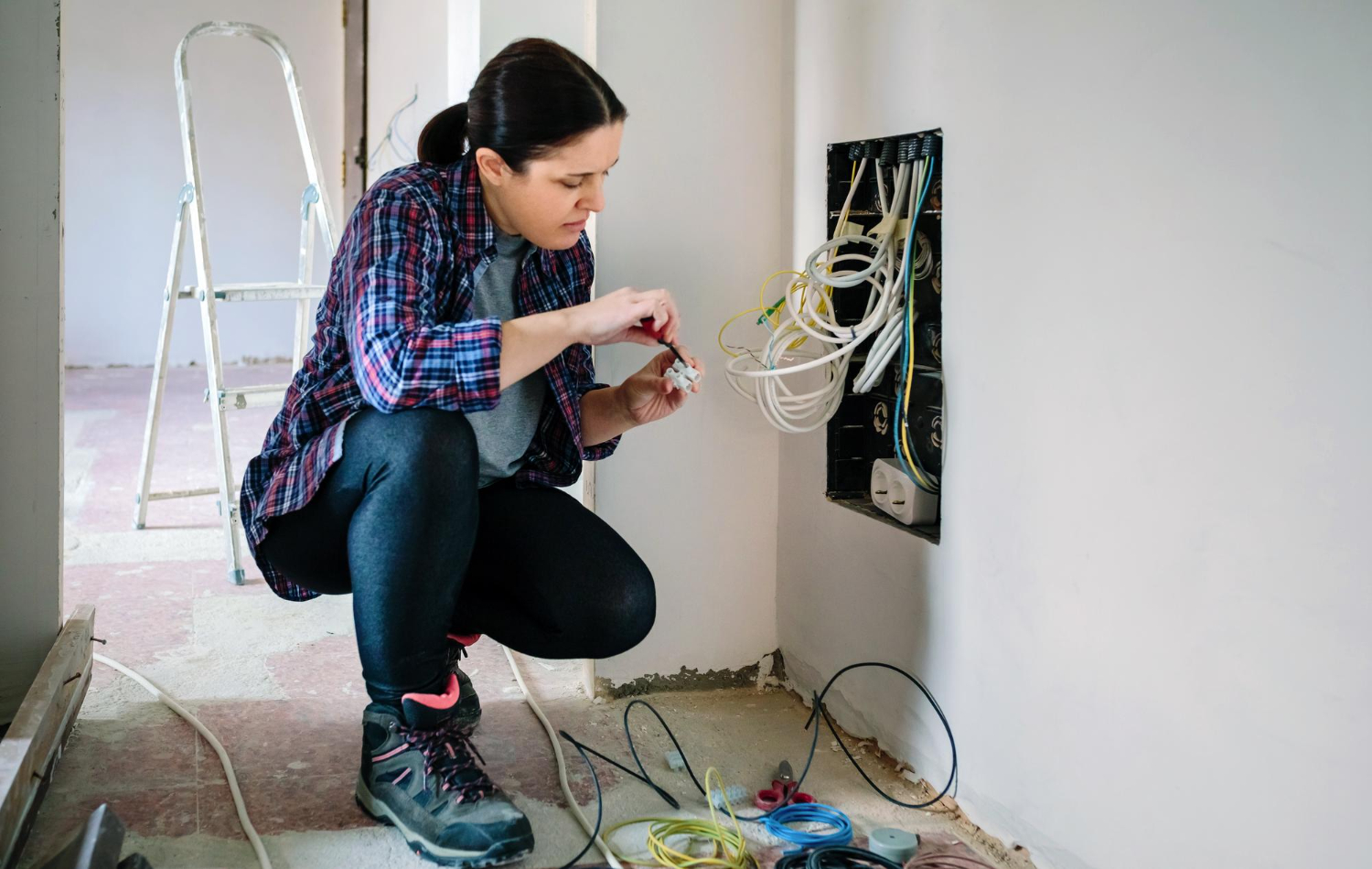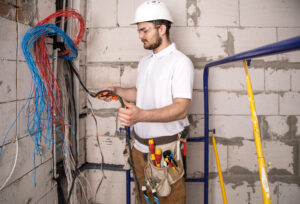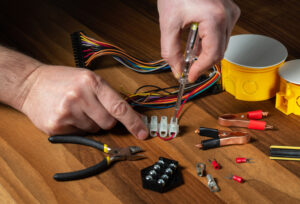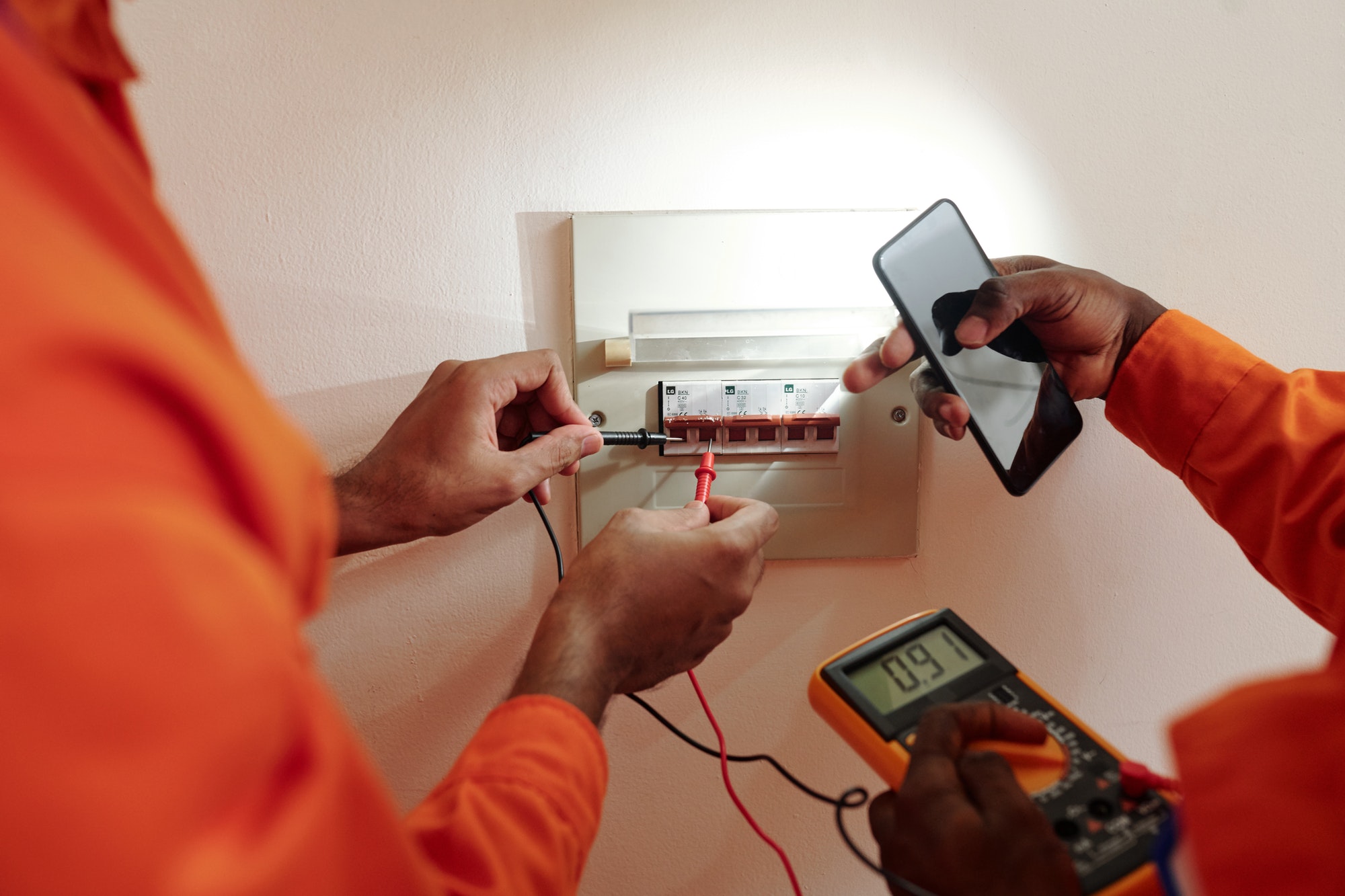Recognizing signs that your home may need rewiring is crucial for maintaining electrical safety and preventing hazards. Electrical hazards can lead to fires, shocks, and damage to appliances. Here are some common signs that indicate your home may need rewiring:
1. Frequent Circuit Breaker Trips
If your circuit breakers frequently trip or fuses frequently blow, it could indicate that your electrical system is overloaded or there is a fault in the wiring. This often happens in older homes with outdated wiring that cannot handle the electrical demands of modern appliances and devices.
2. Flickering or Dimming Lights
Flickering or dimming lights, especially when using certain appliances or switching on multiple devices, can indicate poor electrical connections or overloaded circuits. This could be a sign that your wiring is outdated or damaged.
3. Buzzing or Crackling Sounds
Buzzing, crackling, or sizzling sounds coming from electrical outlets, switches, or appliances can indicate loose connections, faulty wiring, or electrical arcing. These sounds should be investigated immediately as they could be a sign of a serious electrical problem.
4. Burning Smells
Burning smells, especially near outlets or electrical fixtures, should never be ignored. This could indicate overheating wires, faulty outlets, or insulation damage. Unplug any devices connected to the affected outlets and contact a qualified electrician immediately.
5. Hot Outlets or Switches
Outlets or switches that feel hot to the touch are a cause for concern and could indicate overloaded circuits, loose connections, or faulty wiring. Hot outlets should be immediately inspected and repaired to prevent the risk of fire or electrical shock.
6. Charred or Discolored Outlets
Charred or discolored outlets, switches, or electrical panels are signs of electrical overheating and should be addressed immediately. This could be caused by loose connections, overloaded circuits, or damaged wiring.
7. Rodent Damage
Rodents chewing on electrical wiring is a common problem, especially in older homes with accessible wiring. If you notice signs of rodent activity or damaged wiring, it’s essential to have the wiring inspected and repaired by a professional.
8. Outdated Wiring
If your home has outdated wiring, such as knob and tube or aluminum wiring, it may not meet current safety standards and could pose a significant hazard. Consider rewiring your home to ensure it meets modern electrical codes and standards.
9. Frequent Electrical Repairs
If you find yourself frequently needing electrical repairs or experiencing recurring electrical problems, it may be a sign that your wiring is deteriorating and needs to be replaced.
Conclusion
If you notice any of these signs of electrical hazards in your home, it’s essential to take action promptly to address the issue and ensure the safety of your family and property. Rewiring your home may be necessary to mitigate the risks associated with outdated or damaged wiring. Always consult with a qualified electrician for a thorough inspection and assessment of your home’s electrical system. They can recommend the best course of action to ensure your home meets current safety standards and regulations.






